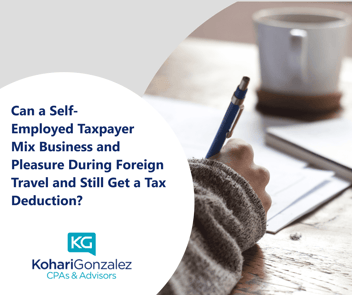 As Baby Boomers and Generation Xers get closer to retirement, careful financial preparation is essential to guaranteeing a safe and enjoyable retirement. This article provides a summary of key tax and financial planning techniques that are specifically designed to meet the needs of those approaching retirement. You will be able to confidently negotiate the challenges of retirement planning if you comprehend and put these techniques into practice.
As Baby Boomers and Generation Xers get closer to retirement, careful financial preparation is essential to guaranteeing a safe and enjoyable retirement. This article provides a summary of key tax and financial planning techniques that are specifically designed to meet the needs of those approaching retirement. You will be able to confidently negotiate the challenges of retirement planning if you comprehend and put these techniques into practice.
Understanding Retirement Goals
It's critical to establish your retirement objectives precisely before using any particular tactics. Think about Jane, a 58-year-old marketing professional, who wants to see more of her grandkids and travel the world. Jane has to estimate her retirement costs and evaluate her expectations for her retirement lifestyle in order to do this. This first stage lays the groundwork for developing a realistic financial strategy that supports her goals.
Maximizing Retirement Contributions
Making the most of your contributions to retirement accounts is one of the best ways to be ready for retirement. Catch-up contributions enable individuals over 50 to increase their 401(k) and IRA contributions, which can increase their retirement savings. Consider 52-year-old engineer Tom, who boosted his 401(k) contributions by utilizing catch-up provisions. His retirement fund was greatly increased by this calculated action, giving him more financial stability.
Tax-Efficient Withdrawal Strategies
It's critical to comprehend the tax ramifications of your retirement savings. For the years 2023 through 2032, required minimum distributions (RMDs) must be taken from conventional IRAs and 401(k)s beginning at age 73. You may reduce your tax liability by carefully planning your withdrawals. Think about the advantages of tax-free withdrawals from Roth IRAs. For example, Sarah, a 65-year-old owner of a business, converted a part of her regular IRA to a Roth IRA in order to diversify her retirement savings. She was able to better control her tax obligations in retirement as a result.
Social Security Optimization
Efficient planning is necessary to optimize Social Security benefits. Benefits payments may increase if benefits are postponed until age 70. To choose the best time to file for Social Security, assess your financial status. John, a teacher who is 67 years old, has chosen to postpone receiving his Social Security payments until he is 70. By making this choice, his monthly benefits were raised, giving him a larger source of income in retirement.
Healthcare and Long-Term Care Planning
Retirement healthcare expenses may add up quickly. To cover additional costs, make sure you are aware of your Medicare alternatives and think about getting supplementary insurance. Because long-term care costs can quickly drain your resources, planning for them is equally essential. 60-year-old Mary, a nurse, purchased a long-term care insurance policy. By taking this proactive measure, she safeguarded her retirement savings by ensuring she would have the funds available to pay for any long-term care costs.
Estate Planning Essentials
Not just the rich and famous use estate planning. The distribution of your assets in accordance with your preferences is guaranteed by having a will and, if required, a trust. To reduce the tax burden on your heirs, be informed about the tax consequences of your estate plan. Take the 62-year-old businessman Robert's tale, who set up a trust to handle his estate. This lowered estate taxes and clarified asset allocation, facilitating a smoother transfer for his heirs.
Investment Strategies for Retirement
Your investing plan should balance return and risk as you get closer to retirement. Proper allocation of assets and diversification can safeguard your funds while allowing for future development. As you get closer to retirement, think about switching to more conservative assets. The 59-year-old financial expert Lisa adjusted the composition of her investment portfolio to include more dividend-paying equities and bonds. This tactic produced a consistent revenue stream while lowering her exposure to market volatility.
Managing Debt Before Retirement
It might be dangerous to carry debt into retirement. Before you retire, make a strategy to pay off high-interest debt. You'll feel more secure financially and more at ease if you have less debt. Before retirement, Mark, a 55-year-old architect, concentrated on paying off his credit card debt and mortgage. By making this choice, he was able to drastically lower his monthly costs and enjoy a more secure retirement.
Selling a Company
Selling a business may play a big role in retirement preparation for business owners. You may make sure you optimize the financial rewards by preparing the sale, knowing the tax ramifications, and accurately valuing the company. Take 60-year-old Susan, a small business owner, as an example. She sought expert guidance to get her firm ready for sale. Susan was able to sell her firm at a premium and secure a sizeable retirement fund by streamlining her operations and being aware of the tax implications.
It's Not Too Late To Plan
For Boomers and Gen Xers who are getting close to retirement, careful tax and financial preparation is crucial. You may guarantee a safe and enjoyable retirement by being aware of your objectives, planning for tax-efficient withdrawals, optimizing Social Security, minimizing debt, arranging for healthcare expenditures, and thinking about selling your business.
Contact our office for expert guidance on navigating these complications and customizing these tactics to your particular circumstance. Our professionals can assist you in evaluating industry best practices and creating a customized financial strategy that supports your retirement objectives.
Reach out to us right now to begin making plans for a prosperous retirement.



